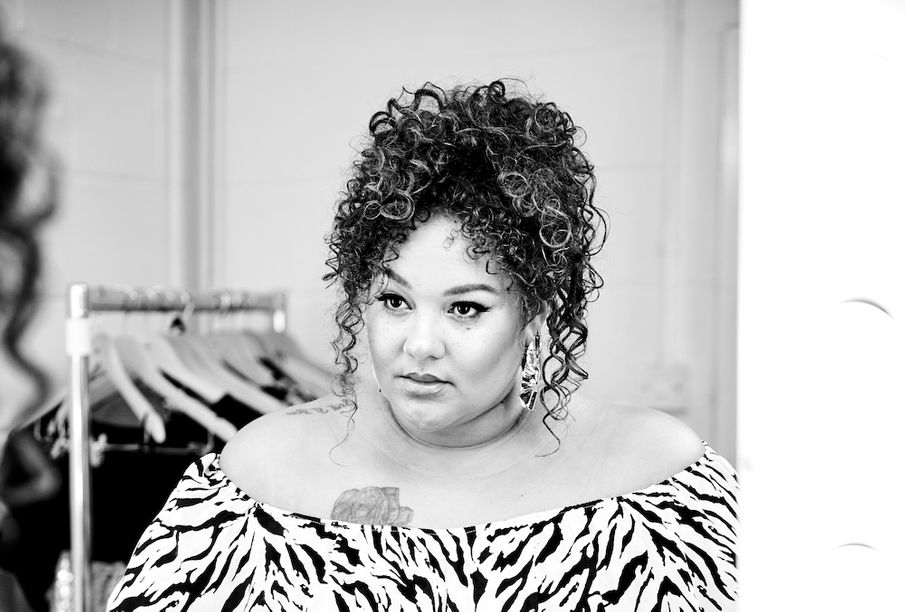As a trainee counsellor, and having experienced trauma first-hand, Grace Victory opens up about what it’s really like to live with PTSD
There are so many topics I want to confront and discuss concerning wellbeing and trauma – the list is literally endless. I have such a huge passion for dissecting these topics because, in the midst of life, everything always feels a bit better when you realise you’re not alone.
I remember the very first time I spoke openly about depression and my eating disorder. It was way back in 2011, in a YouTube video, and it felt revolutionary, like something had been lifted and my eyes had been opened. I remember thinking “Wow... when you talk about your feelings, other people talk about theirs, too.” It was powerful. While talking may not be the only way to heal and recognise the difficult things within us, it really can be a good place to start.
As a child, I always knew something was a bit off with me, but I could never pinpoint what it was exactly. I rarely felt angry, I always felt sad, and I never felt safe. Maybe some of you can relate? I felt like the black sheep who was shunned by others, so I isolated myself.

Photography | Paul Buller
My basic needs were met, but many other needs were not, which is still something I’m coming to terms with. For a long time, I didn’t realise I hadn’t experienced what other people would call a ‘normal’ childhood, but I guess it was normal for me.
I remember the first time I sat down with a therapist and told them what my childhood was like. I reeled off things I’d heard, seen, and had happen to me. I was so used to trauma that I minimised it in my head. If it was small and locked in a cage then I didn’t have to feel or deal with it. I detached so much from myself that telling my story became matter-of-fact, as if it wasn’t my own story that I was telling.
It wasn’t until I was 26 that I began to realise the effects that trauma had had on me, and in the summer of 2016 I received a diagnosis of post-traumatic stress disorder (PTSD). My initial reaction was “Well WTF is that? It sounds like some sort of weird disease that I definitely do not want.” I was that person. I had (still have) so much shame inside of me about my victimhood that I hated the fact I had ‘something’.
For those of you who are unsure what PTSD is exactly, allow me to break it down for you. PTSD is a mental health condition triggered by an event, or a series of events, that the individual experiences as terrifying. This can be something happening to them, or watching it happen. PTSD causes your brain to remain in the danger zone due to increased stress levels. PTSD can then manifest as flashbacks, anxiety, and depression, when triggered by anything from scents to loud noises. Some catalysts for PTSD include war, rape, domestic violence, and severe sickness.
Being a victim doesn’t make me weak, feeling pain doesn’t make me a burden, and that what other people did, has never been my fault
My diagnosis meant that I needed to confront my issues head on, and I felt overwhelmed with dread. However, somewhere deep inside of me, I also felt relief. Like my inner child was saying: “Thank God I’m not making all of this up in my head.”
It’s been three years since my diagnosis and honestly, most days I am surprised by how much trauma has affected my life. I don’t tend to talk about it much online because everything is pretty painful still. Isn’t it weird how much pain a person can feel, and still smile? I smile every day, but every day I feel confused and lost, and like everything I once knew was a lie. I am learning that being a victim doesn’t make me weak, feeling pain doesn’t make me a burden, and that what other people did, has never been my fault.
PTSD keeps you in an almost constant state of “fight or flight” – like a ticking time bomb that’s about to explode into rage or erupt into tears. And for some people this could be disappearing (physically or emotionally) and not feeling anything at all.
Now that I am working on my subconscious programming, and learning how to re-parent myself, I am so aware of my triggers and internal thoughts, so life is so much easier. Now I know why I’m angry, or why I’m sad, and I have the tools to sit with those feelings, or release them safely. Some days are battles that I lose, some days are battles I win, and some days no battles exist, and I am learning to be OK with all three. Love Grace x
Come back next month for more from Grace!


Comments